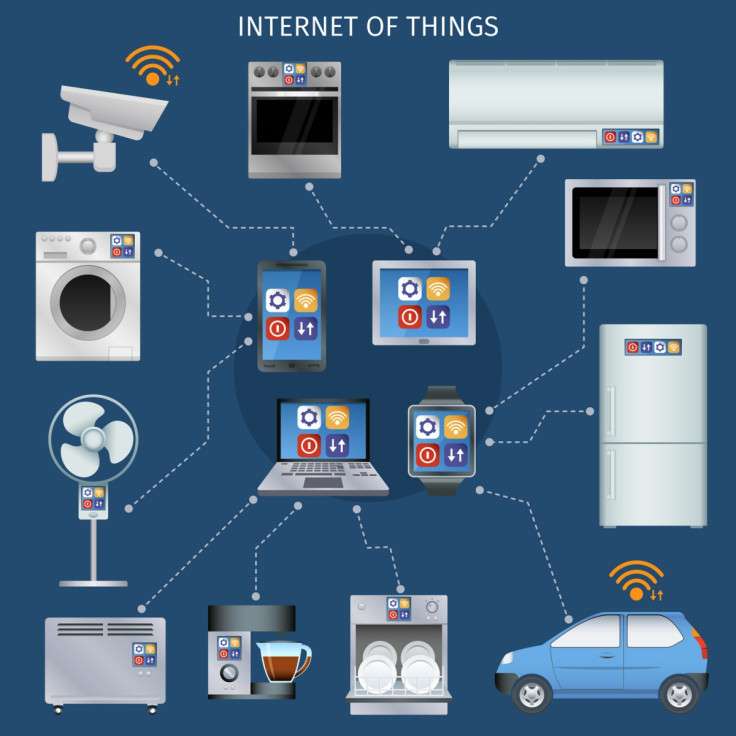Bosch, Cisco and Foxconn join blockchain and IoT consortium
Group includes BNY Mellon, Bosch, Cisco, Gemalto, and Foxconn, as well as a host of blockchain start-ups.

A new industrial blockchain initiative has been launched to define the standards and protocols for distributed ledger and the 'internet of things' (IoT), including Fortune 500 firms BNY Mellon, Bosch, Cisco, Gemalto, and Foxconn, as well as a host of blockchain startups.
The initiative was born at a meeting back in December, New Horizons: Blockchain x IoT Summit. Participants in the discussions included blockchain companies Ambisafe, BitSE, Chronicled, ConsenSys, Distributed, Filament, Hashed Health, Ledger, Skuchain, and Slock.it.
The initiative, according to a statement, was motivated by the leaps made by startups and large, blue-chip IT firms in deploying blockchain-registered tamper-proof hardware for various use cases and making new blockchain-based software systems available to enterprises.
The group agreed that security, trust, identity, and registration and verification would be the cornerstones of any common protocol, while also acknowledging the need for integration and inter-operability across multiple chip types, communication protocols, proprietary platforms, cloud-service providers and blockchain systems.
A blockchain-technology industry consortium emerging from the meeting would move forward in defining the scope and implementation of a smart-contracts protocol layer across several major blockchain systems, with elective steer from the attending Fortune 500 companies. The functioning of the group is voluntary at this stage with intent to emphasise nimble and fast-moving open source collaboration with any formal membership or governance structures emerging if and when necessary, it said.
Skuchain Co-founder Zaki Manian said: "We called together leaders in blockchain, hardware, software, venture capital, technology and finance to discuss the barriers to interoperability and security within IoT and how we can complement existing IoT platforms with a blockchain back-end. We believe there is a real value proposition here for IoT, supply chain and trade finance."
Dirk Slama, chief alliance officer at Bosch Software Innovations, said "We are seeing tremendous potential for the application of blockchain in industrial use cases. Being able to create a tamper-proof history of how products are manufactured, moved and maintained in complex value networks with many stakeholders is a critical capability, eg for quality assurance and prevention of counterfeits. This must be supported by a shared blockchain infrastructure and an integrated Internet of Things protocol."
"Blockchain has the power to improve resiliency and efficiency in a fully connected world," said Alex Batlin, head of blockchain at BNY Mellon. "What 's missing today is a solution that provides trusted, tamper-proof guarantees for any title deed, public record, compliance event, or transaction, building on the way paper documents are used currently."
Joe Pindar, in the CTO's office at Gemalto, said: "Securing identity for physical property and packaging is going to be a big business opportunity over the next decade, high value parts of logistics supply chains and regulated industries like energy, pharmaceuticals, and cold chain could all see a blockchain component over the next decade."
Jack Lee, managing partner at HCM Capital, an investment arm of Foxconn Technology Group, said: "We are excited to see leaders in the Blockchain and IoT space coming together from America, China, France, and Germany to develop a standard Blockchain IoT protocol. This is a positive step towards industry confidence, momentum, and interoperability. We're looking forward to collaborations in this space in the near future."
"In order to power the sharing economy, door locks, autonomous vehicles, and electric charging stations will need to have secure identities," said Slock.it co-founder and CTO Simon Jentzsch. "We are already working on a number of use cases; by teaming up with this consortia, we can create common primitives to register and verify hardware identities on blockchain."
BitSE CTO Patrick Dai said: "If we want to secure the internet of things we need to standardise how we identify, manage and communicate with internet-enabled devices through blockchain technology. With a standardised protocol, more people will be able to share in these benefits."
Joseph Lubin, founder and CEO of ConsenSys, said: "ConsenSys is very excited to be part of a group pursuing rationalisation and standardisation of the interfaces linking blockchain and a potentially very wide variety of devices. This group has the expertise to craft sufficient yet elegant interfaces, and our energy-projects group and supply-chain management projects group are eager to see how we can apply these to our own systems."
Ambisafe co-founder and CEO Andrei Zamovskiy said: "We are excited to be a part of an initiative to create a secure, transferable, notary-enabled and payments-enabled identity for any physical thing, object, device or machine."
Ledger CTO Nicolas Bacca added: "We are building a new generation of hardware with secure elements, strong cryptography and open firmware to secure the IoT. We're excited to contribute to innovative identity protocols extending the concept of "object passports" to blockchain technologies."
© Copyright IBTimes 2025. All rights reserved.






















